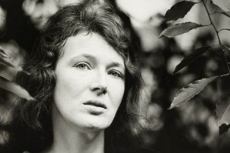
One of the first instances we see of animalistic references is when Baudelaire calls Jeanne, ' My monkey, my pussy-cat, my pet...' Instantaneously we may see this as a derogatory comment, within our own century's system of morality, particularly with the context of Jeanne's skin being a different colour, and this somehow equivocating her to a 'monkey,' suggesting she is perhaps of a lesser intelligence. However, I believe that Carter is deliberately teasing us as an audience. Normally, we would probably just see these names as terms of endearment, especially given the context that the people in question are lovers. However, simply due to the implications of historical context, the gender of Baudelaire, coupled with Jeanne's race, we are almost instinctively lead to perceive this as a subtle, offensive gesture. By having Baudelaire compare Jeanne to animals, Carter potentially implies a vulnerability, and distances Jeanne to an extent. Although, by juxtaposition, many scholars hold the belief that Baudelaire was quite simply enchanted by her, enthralled with her skin and body; 'Baudelaire is fascinated by Jeanne Duval's appearance...He regards her as the personification of the animal-like, of the natural.' If this is the case, then Carter has actually created something to add to the mere shell of pronouns used to describe the Baudelaire, and given him a sense of emotion, which ultimately allows us as readers to feel less ostracized from him.
Another consolidation of the animalistic theme, is shown through the entrance of a cat. Initially, Jeanne is almost jealous of it as she notes, ' him loving the cat up with the same gestures,' but she subsequently finds a kind of kindred spirit; 'She forgave the cat for its existence; they had a lot in common.' This serves Carter's purpose of isolating Jeanne from other people, by inferring her closest alliance is with an animal. I think that the almost constant infusion of animal references builds up a barrier which clearly represents Jeanne's feeling of not belonging; it could even be a subtle link to a language barrier between Jeanne and the people who lived alongside her, particularly as her country of origin is unknown, and her language/s are heavily speculated. Equally, Carter is deftly demonstrating the prejudiced attitudes of people at the time towards people of other races, by causing the reader to become uncomfortable with Jeanne being reduced to the level of an animal. In this way, perhaps Carter's retelling is more successful than Hopkinson's, due to the fact that Hopkinson predominantly uses the Mother of Baudelaire as a representation of wider social views, but the views are stated plainly rather than with Carter's Subtlety, and as such, the audience has less to think about.
Image: https://en.wikipedia.org/wiki/Angela_Carter

0 Comment:
Be the first one to comment on this article.